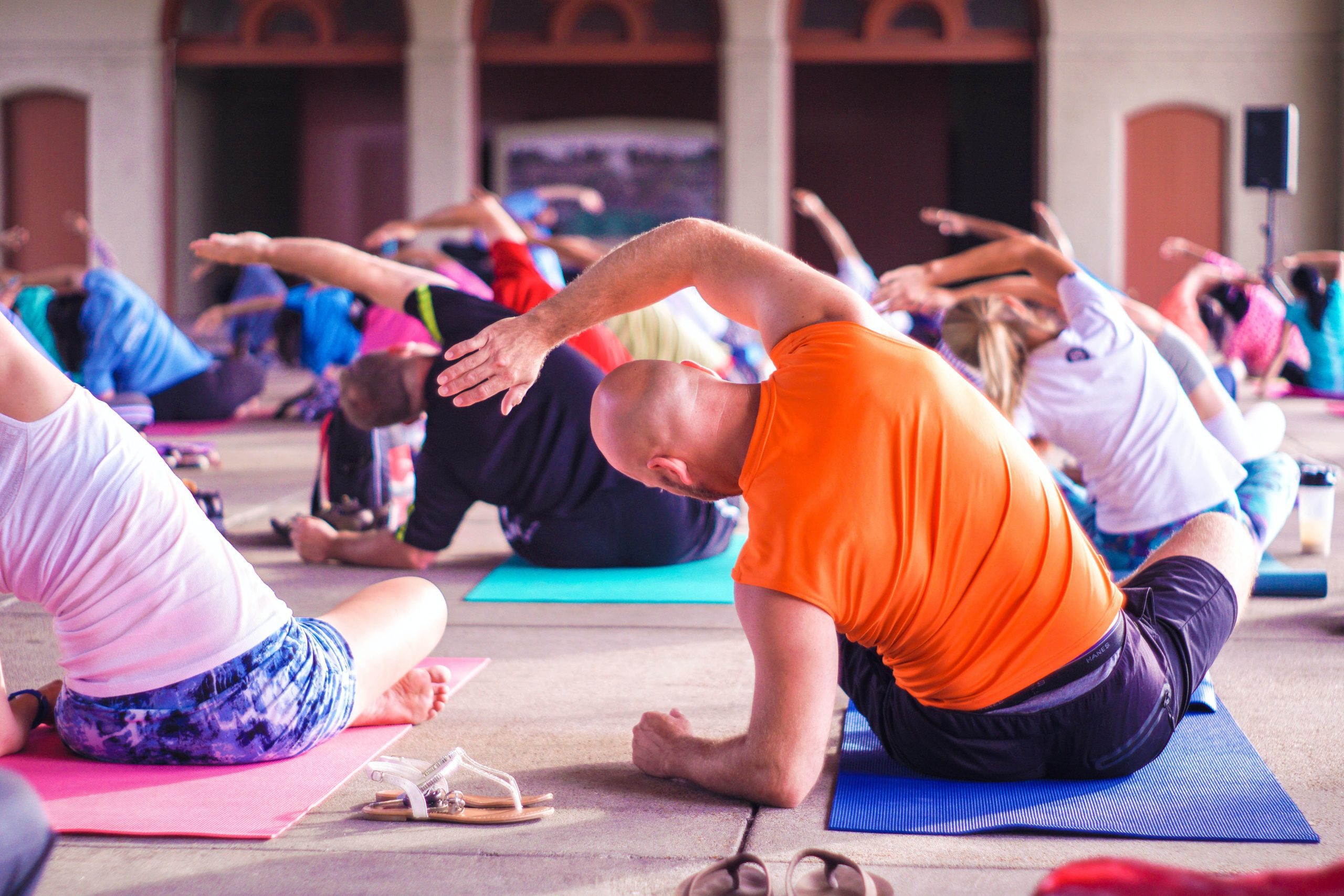Medication and therapy are the most common–and also highly effective–ways to improve one’s mental health. However, wellness and self-care practices are also critical. Yoga is a wellness practice that combines both meditation and exercise to calm, strengthen, and connect body and mind. Yoga can even be incorporated into therapy sessions. As such, it can be an excellent complement to traditional interventions.
What is Yoga?
With so many different types of yoga, it is important to consider which style is most likely to meet your specific needs:
- Gentle Yoga Styles
- Hatha – a simple class that combines a few yoga styles and is recommended for beginners.
- Anusara – may include chanting and meditation, along with up to 250 different yoga poses.
- Iyengar – slow-paced, and may use props to help participants achieve correct positioning.
- Restorative – may utilize bolsters, blankets, boxes and chairs for support; it focuses on mind, body, and spirit.
- Kripalu – starts with slow movements and progresses through three levels of awareness.
- Sivananda – includes 13 poses, and participants are able to lay down between poses. This form of yoga is especially good for those who need to make adaptations for physical limitations they experience.
- Challenging Yoga Styles
- Ashtanga – involves continuous movement and a special breathing technique.
- Bikram – sometimes referred to as “hot yoga,” this style takes place in a room that is over 100 degrees Fahrenheit. This type of yoga is not recommended for people with certain health conditions.
- Vinyasa Flow – also sometimes called “power yoga,” this is one of the most athletic forms of yoga.
- Jivamukti – the physical parts of this yoga style are similar to power yoga, but it also incorporates the ethical concepts of veganism, nonviolence, and chanting.
How Does Yoga Benefit Mental Health?
Yoga benefits mental health in several different ways:
- Reduced stress and increased relaxation
- Decreased chronic pain as a result of increasing flexibility and physical strength
- Reduced depression symptoms due to increased production of serotonin
- Lowered cortisol (stress hormone) levels and improved ability to disengage from fight or flight reaction, which can improve anxiety
- Improved quality of sleep
- More optimistic outlook on life
- Reduction in intrusive memories and emotional distress in people with PTSD
Brain studies have found that people who regularly engage in yoga have thicker cerebral cortexes (the part of the brain that processes information) and hippocampuses (the part of the brain that handles learning and memory) than people who do not practice yoga. While these parts of the brain typically shrink with age, they have been found to shrink less in older people who engage in yoga regularly. This may result in better reasoning, decision making, memory, learning, and reaction time.
How to Select a Yoga Type
Because there are so many different types of yoga, it may be difficult to know which one is best for you. Start by asking yourself three questions:
- Are you pursuing yoga to improve your physical fitness? If so, you may find one of the challenging styles more beneficial to achieving your goals.
- Do you have any physical limitations from an injury or medical condition? If this is the case, you should probably stick to some of the slower styles, like Iyengar or Kripalu.
- Are you primarily wanting to utilize yoga for meditation and spiritual benefits? A style of yoga that focuses on philosophy and includes chanting, like Kundalini, Anusara, or Restorative might be a good fit for this situation.
How Can I Try Yoga?
There are a number of different ways to give yoga a try:
- In-person classes at a yoga studio
- Community centers
- Online classes
- Youtube videos
- Borrowing DVDs from a local public library
If you have health concerns, consult your doctor before trying yoga or any other exercises, and if you have not done yoga or exercised regularly, start with a gentle yoga practice.
Highland Hospital in West Virginia promotes yoga as an intervention for mental wellness. If you would like to learn more about how we continue to innovate and take a whole-person approach in our treatment, we invite you to reach out to our caring team of mental health professionals.










